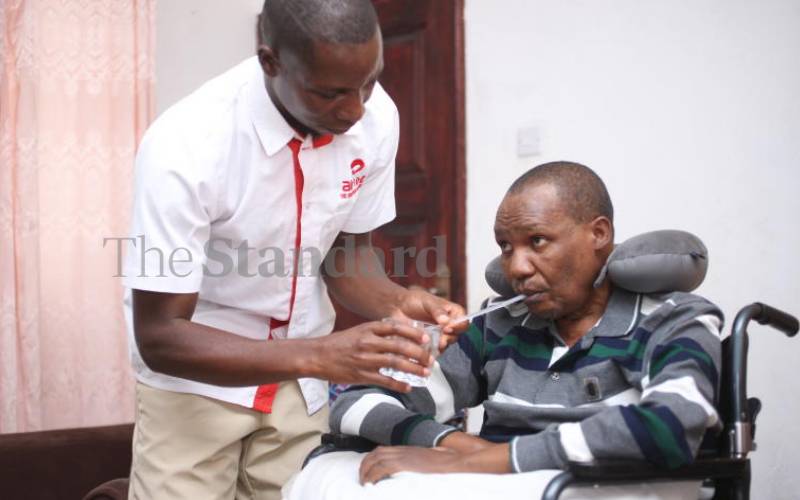×
The Standard e-Paper
Home To Bold Columnists

Stephen Kuria at his home in Gilgil, Nakuru County. [Wilberforce Okwiri, Standard] .
Before 2018, life was normal for the family of Stephen Kuria, who managed a modest stationery business in Gilgil town. His granddaughter added to the family’s joy - but this was lost on account of a rare nerve condition.